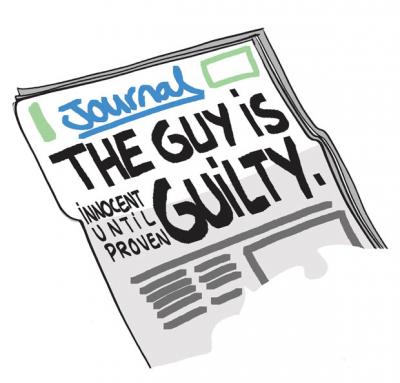Since its coming into force in 2002, the Prevention of Corruption Act (PoCA) aims at encouraging the public at large to disclose acts of corruption. The Commission even considers anonymous complaints forwarded either by email, fax or courier and has a dedicated hotline. Any informant willing to disclose acts of corruption, based on reasonable grounds that the information being imparted is true, will actually be bestowed immunity from criminal and civil proceedings. Against, this backdrop of open disclosure, investigations seems to be shrouded in secrecy, for the PoCA expressly provides for officers and members of the Board to maintain a high level confidentiality in respect of the information, document, report or any matter that comes into their possession.
Those who report an act of corruption to the Commission and those who collaborate to further an enquiry frequently fail to appreciate that maintaining confidentiality is key to an ongoing investigation. The details of an ongoing investigation may lead a potential suspect to interfere with potential witnesses, destroy evidence or fabricate false evidence that might exculpate him from criminal proceedings. Such acts and doings of a potential suspect have not yet been sanctioned by the law, and it will hopefully be catered for in subsequent amendments to the law. We are delighted to have, within this issue*, the contribution of Mr. Jonathan Lin, Senior Public Prosecutor, from the Department of Justice, Hong-Kong, on the provision of Section 30 of the Prevention of Bribery Ordinance and which Mr. Lin’s states seems to portray “a tug of war between the freedom of speech and the importance of preserving integrity of ICAC investigations”.
In a democratic society, the Press would always play its vital “watchdog role” in reporting allegations of corruption in the public interest. The Constitution protects freedom of expression to the extent that it does not infringe other provisions of the law such as protection of reputation. Some argue that reports in the press may severely damage the immediate reputation of an individual. Although such reports may not be defamatory in the legal sense, the stigma to being associated with a corruption offence in a small island jurisdiction is quite heavy. Some observers question the appropriateness and timing of the media commenting or reporting on an allegation of corruption which has been submitted to the ICAC and copied to the said media, especially when it is anonymous and may even be unfounded. Lately, we have witnessed, that some of the key witnesses in a trial would fail to attend court and depose or if they do attend, they would qualify their statements made to the ICAC to impart another meaning, thereby severely denting the case for the prosecution. With hindsight, one may wonder whether such cases really deserve to have ever been reported in the press. Responsible journalism is a difficult balancing exercise, with several competing interests, and we need to reflect the extent to which some cases of corruption have been reported in the press. The glaring factual details may, depending on the time an article is published, impede on the smooth running of an investigation.
To what extent at what stage, and in which circumstances should details of an investigation be made public ? This is a question that needs to be addressed also in the broader context, more-so as the ICAC is endeavoring through amendments in the law to resort to hearings in the course of its further investigations. These amendments are necessary as presently there may be issues and questions raised as to the propriety of such hearings vis-à-vis the investigation itself. The amendment would cater for these and set clear guidelines and lay down proper procedures so that the Commission may resort to hearings in the course of its further investigations.
A criminal investigation connotes an “evidence gathering exercise”, and the latter has its universally recognized proprieties. “Hearings” perhaps ought to be resorted to in the public interest also to expose corrupt conduct and practices amongst others.
Please join me on the ICAC Facebook Page (www. facebook. com/icacmauritius), which will host a post to invite comments and views from the public to debate to which extent an investigation should be kept confidential.
CONFIDENTIALITY & CORRUPTION INVESTIGATION : The boundaries
- Publicité -
EN CONTINU ↻


